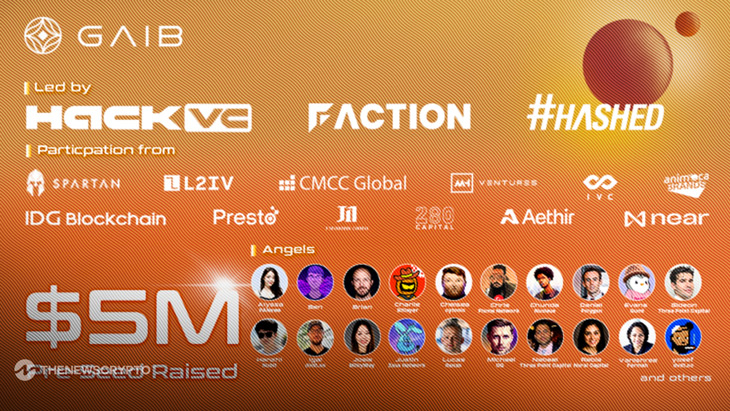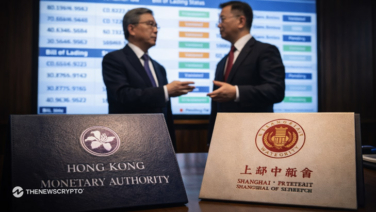- GPUs and their yields are tokenized by GAIB, which enables the establishment of a new asset class.
- GAIB has also recently obtained noteworthy partnerships with industry giants like as Aethir and io.net.
GAIB, a platform that is developing financial infrastructure for artificial intelligence computing, made the announcement today that it has successfully completed its pre-seed funding round of $5 million. The round was co-led by Hack Venture Capital, Faction, and Hashed, and it also included strategic investments from notable organizations such as Spartan, CMCC, L2IV, Animoca Brands, IVC, MH Ventures, Presto, J17, IDG Capital, 280 Capital, Aethir, and Near Foundation, in addition to a number of angel investors.
The funds will be used to increase the size of the research and development and operations teams, speed up the process of product iteration, and develop the infrastructure of the platform in order to satisfy the requirements of the market. Its objective is to pioneer a liquid, decentralized market for enterprise-grade graphics processing units (GPUs), and the funds will help it realize that purpose. Additionally, the funds will address major gaps in GPU financing and investor accessibility.
GPUs and their yields are tokenized by GAIB, which enables the establishment of a new asset class that is supported by actual demand for artificial intelligence. Within the realm of artificial intelligence (AI), which has traditionally been controlled by stock investments in a few number of major AI or semiconductor businesses, this innovation makes it possible to create new and direct investment channels. Through the integration of artificial intelligence, GPU needs, and blockchain technology, GAIB presents a revolutionary kind of yield-bearing assets. These assets serve as the basis for a wide range of decentralized finance (DeFi) use cases, providing users with access to direct GPU exposure, yield products, hedging, speculation, and a variety of portfolio strategies.
Kony Kwong, Founder and CEO of GAIB stated:
“We’re building the first economic layer for AI compute, bringing new investment possibilities into this surging sector. With this funding, we’re transforming GPUs and their yield into a tradable asset class, empowering individuals and institutions to directly engage with the trillion-dollar AI compute market through these new vehicles for direct investment.”
Alex Pack, Co-founder and Managing Partner from Hack VC added:
“We are thrilled to support GAIB as they unlock direct investment opportunities to the critical AI compute market that has long been dominated by a few large players. We’re excited to support GAIB in building the financial infrastructure for the AI era.”
GAIB has also recently obtained noteworthy partnerships with industry giants like as Aethir and io.net, establishing itself to be a pioneer in the field of financial innovation for compute assets. In addition to significantly enhancing GAIB’s ecosystem, these developments make it possible for the organization to scale thanks to its one-of-a-kind approach to compute financialization.
In order to create a new kind of yield-bearing assets that are supported by actual AI needs, GAIB is the first economic layer for artificial intelligence compute. The tokenization of enterprise-grade GPUs and their yields results in the creation of a decentralized liquid market for GPU financing. This market offers investors direct exposure to GPU assets while simultaneously satisfying the rising demand for high-performance computing. The platform makes it possible to build a wide range of decentralized finance (DeFi) use cases on top of it. These use cases include GPU-backed stablecoins, lending and borrowing, options and futures, and a variety of structured products.








